Neva Dinova
WUK, 2008
On your way home on a calm Monday evening you pass by a back road so inanimated that you can hear your own gaits and your own breath, when suddenly some sweet sound gets you prick-eared. Is there someone playing guitar? Where does this lyrical singing come from? You glance through the window of a self-help-bicycle-repair-shop where Jake Bellows seems to do some unusal rehearsal. Surrounded by bikes of all sizes and styles Jake starts the song “Squirrels” anew. After two previous recording-failures the singer and guitarist from Omaha-based Neva Dinova is giving our soundman a questioning look. In fifteen minutes Jake shall be on stage, yet he still has a go for climbing on a grid, testing his capo on the borrowed guitar and trying out his very beautiful, new song “Should you ever change your mind”. Jake Bellows stays jocular, even though he is directly ordered to stage and forgets in this rush his capo that is needed for the show. While the melancholic and fragile “Should You Ever Change Your Mind” is resounding in our heads for a long time, Neva Dinova, the band that is named after Jake Bellows’ grandmother, is rocking hard on stage.
- Photography
- Simon Brugner
- Artist
- Neva Dinova
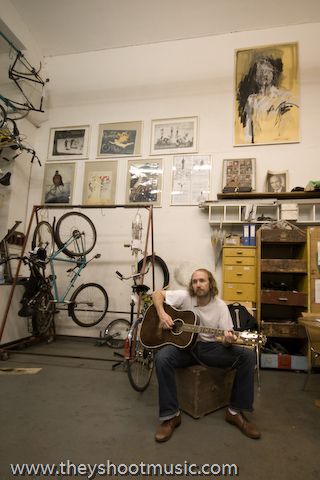
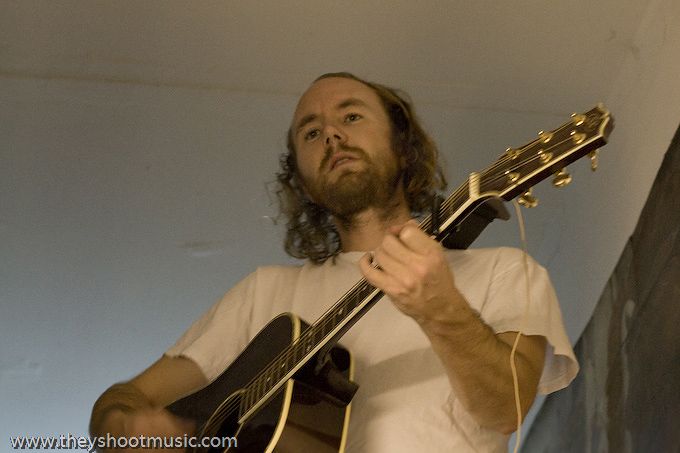
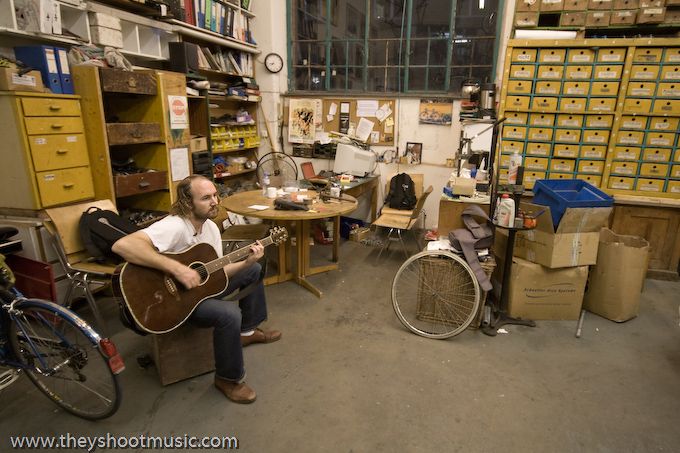
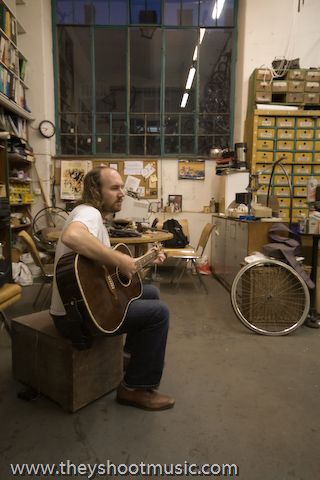
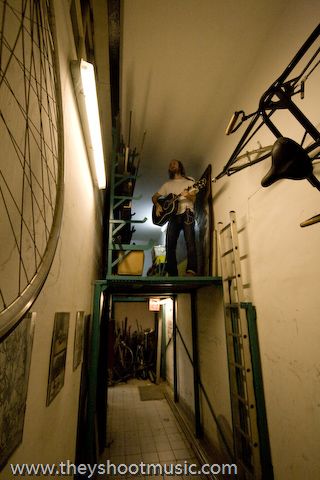
WUK
Wuk is short for Werkstätten- und Kulturhaus (Workshop and Culture House) – is not only a venue for concerts. The brick building with its charmingly sleazy cobbled courtyard hosts 130 groups and initiatives, which produce all kinds of non-mainstream-art. The cultural center is subsidised by the City of Vienna, but the groups work autonomously and self-governed. Apart from the concert hall, studios and workshops there is also a café with a nice outdoor area in the WUK courtyard and a self-help bicycle repair shop. The 19th century building was originally used as a factory for train engines. In 1884, the Technologisches Gewerbemuseum (Technologic Trade Museum) moved into today’s WUK and turned it into a place of science, education and exhibitions with the purpose to keep the Austrian-Hungarian monarchy up-to-date in questions of technological development. The monarchy was more than half a century gone when there were still engineers trained in Währinger Straße 59. In 1981, the building was handed over to an association of alternative Viennese artist, teachers, students and other activists.